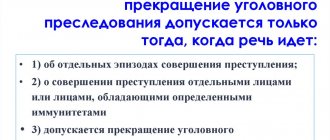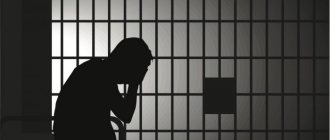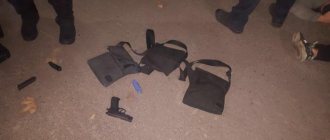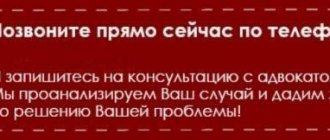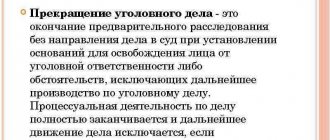Lawyer Spiridonov M.V.
08/27/2018 0 Comments Law practice Spiridonov M.V., Criminal cases
lawyer in Novosibirsk, lawyer under Art. 213 of the Criminal Code of the Russian Federation, criminal lawyer, termination of Art. 213 of the Criminal Code of the Russian Federation, termination of criminal proceedings, rehabilitation, Art. 213 of the Criminal Code of the Russian Federation, defense tactics under Art. 213 of the Criminal Code of the Russian Federation
In this article, using the example of one case from my legal practice, I will consider certain features of the crime under Art. 213 of the Criminal Code of the Russian Federation.
In the case under consideration, due to the fact that it was established that there was no intent to commit the alleged hooligan acts, the criminal prosecution against the suspect was terminated for lack of corpus delicti, that is, under clause 2 of part 1 of Art. 24 of the Code of Criminal Procedure of the Russian Federation, with recognition of the right to rehabilitation.
Case plot:
A citizen asked for legal assistance and explained that a criminal case had been opened against him under Part 2 of Art. 213 of the Criminal Code of the Russian Federation, that is, hooliganism committed by a group of persons by prior conspiracy. After reviewing the documents and discussing the situation, it was established that the following circumstances served as the reason for initiating a criminal case.
One autumn day, the trustee arrived at a nightclub, where he met his acquaintances at the entrance, he greeted them and went inside the club. However, the client did not pass the so-called “face control” and was forced to go back outside. Once on the street, he saw his acquaintances being beaten by the club’s security guards, and my client also came under the hot hand, as a result of which he was severely beaten.
The police arrived, everyone who was beaten was asked: “Are you going to write a statement about the beating?” To which everyone unanimously refused, the police left. Moving a little away from the club, the trustee saw his beaten acquaintances and asked what happened? Why were they beaten and him? No one could really explain anything.
The client tried to call his acquaintances, asked them to pick him up, so he kept going away and then approached his acquaintances again, moving around the surrounding area and talking on the phone.
At some point, two of the standing guys decided to return to the club and find out the reason for the beating. To prevent them from being beaten again, they took two sticks for their protection. Approaching the club, the guards began to hold the door from the inside to prevent the indicated guys from entering, they, in turn, began to strike with sticks and broke the glass door of the club.
Hearing the screams of their friends, the previously beaten guys standing nearby decided that their comrades were being beaten again by the guards and ran towards the entrance to the club, some of them ran inside through the broken door.
My client at that moment was not far from the club, but did not go inside the premises.
The club's security guards, apparently frightened by the current situation, sprayed tear gas inside the club, after which the guys who ran into the club ran out. The police arrived again, collected explanations from everyone, the guys who broke the door compensated the owner of the establishment for the damage caused, everything seemed to be resolved peacefully, the police left, but a few days later a criminal case was opened against the guys, including my client, under Part 2 of Art. 213 of the Criminal Code of the Russian Federation.
The corpus delicti according to the Criminal Code of the Russian Federation
The object of hooliganism is social relations (the established order of behavior, the interests of a particular citizen or group of people). The objective side of the act is the setting of its commission (public) and the method (use of weapons, other objects).
The subjects of hooliganism are sane individuals who have reached the age of 16. However, when carrying out an act by conspiracy or as part of a group, as well as when resisting law enforcement officers, the age threshold is reduced to 14 years (read about resisting a police officer at https://lexconsult.online/6134-soprotivleniya-sotrudniku-politsii -pri-zaderzhanii).
The subjective side of domestic hooliganism according to the Criminal Code of the Russian Federation is direct intent, i.e. the guilty person openly neglects the interests of society, violates its foundations and desires certain consequences.
The punishment imposed under the Criminal Code of the Russian Federation can be expressed in the form of a fine (up to 1,000,000 rubles), correctional labor (up to 2 years) or imprisonment (up to 8 years). The sanction is determined by the court taking into account the circumstances of the case.
Line of defense:
I did not accept the defense immediately, but several months after the incident. Having familiarized myself with the situation, I could not understand what exactly hooliganism consists of? No harm was caused to anyone (except the beaten guys themselves), the damage for the broken door was compensated on the spot, which is the objective and subjective side of the incriminated act.
To correctly understand what is being discussed in the article, it is necessary to turn to the regulatory framework of hooliganism.
According to the disposition of Article 213 of the Criminal Code of the Russian Federation, as well as the provisions of paragraph 1 of the Resolution of the Plenum of the Supreme Court of the Russian Federation dated November 15, 2007 No. 45 “On judicial practice in criminal cases of hooliganism and other crimes committed from hooligan motives,” it follows that criminal hooliganism can Only such a gross violation of public order, expressing clear disrespect for society, which is committed with the use of weapons or objects used as weapons, or for reasons of political, ideological, racial, national or religious hatred or enmity, or for reasons of hatred or enmity in in relation to any social group.
An important aspect of hooliganism is the absence of a reason for committing actions, or an insignificant reason for those actions that are subsequently considered for hooliganism.
That is, hooliganism will occur if the actions specified in the disposition of Article 213 of the Criminal Code of the Russian Federation are committed without any reason or using an insignificant reason.
Thus, according to paragraph 12 of the Resolution of the Plenum of the Supreme Court of the Russian Federation dated November 15, 2007 No. 45 “On judicial practice in criminal cases of hooliganism and other crimes committed from hooligan motives,” criminal acts committed from hooligan motives should be understood as intentional actions , directed against a person’s person or his property, committed without any reason or using an insignificant reason. At the same time, in order to correctly establish these motives in the event that the perpetrator commits violent acts during a quarrel or fight, the courts need to find out who initiated them, and whether the conflict was provoked to use it as a reason to commit illegal actions.
If the instigator of a quarrel or fight is the victim, as well as in the case where the conflict was caused by his illegal behavior, the person is not liable for committing a crime against such victim out of hooligan motives.
Based on the above explanations, I did not see intent to commit hooliganism in the situation that occurred, and, accordingly, no corpus delicti.
I came to this conclusion based on the fact that neither the principal nor the other guys intended by their actions to violate public order or commit other actions specified in Article 213 of the Criminal Code of the Russian Federation. The guys went back to the club only after they were beaten by the guards and they went there to find out the reason for the beating, and not to disturb public order.
They had a reason, even if it may not be entirely logical, to return to the club, and accordingly, such an important category for qualifying hooliganism as “no reason” or “minor reason” disappears. The guys did not commit any other actions besides breaking the door, did not beat anyone, etc.
Another important point is that the guys, when visiting the club again, met only those guards who beat them. That is, none of the outsiders saw what was happening, and accordingly, a violation of public order is excluded, since the events occurred only between two “warring parties” between whom there was previously a conflict.
In accordance with the disposition of Article 213 of the Criminal Code of the Russian Federation, the actions of persons who committed hooliganism must be without cause, expressing clear disrespect for society and aimed at disturbing public order. Such conclusions follow from the analysis of judicial practice. In the case under consideration, taking into account the earlier conflict between the club security guards and the beaten guys, hooliganism in their actions was excluded, and they did not commit any other actions that could be qualified from the point of view of the Criminal Code of the Russian Federation.
The problem was that the participants in the incident gave illogical and inconsistent testimony, from which it was not clear why the guys went to the club, and even with sticks. It was not seen that before this they were fairly beaten by the club’s security guards, and accordingly there was no causelessness in their subsequent actions, which were determined precisely by the fact of the beating.
In order to confirm the fact of the beating, the client underwent a forensic medical examination, requested additional interrogation, during which he gave consistent, truthful testimony, which was confirmed in confrontations by other participants in the incident.
As a result, it was established that in the actions of the principal and his acquaintances there were no signs of hooliganism, since the true cause of the conflict that arose was established, namely beating by the club security guards, which in turn excluded the “gratuitousness of the actions” of the guys, and, accordingly, the elements of hooliganism .
Ruling to exclude charges under Article 213 of the Criminal Code of the Russian Federation
CASSATION DETERMINATION
Judicial panel for criminal cases of the Moscow City Court, consisting of: presiding Buyanova N.A., judges Dubrovina O.V., Vyrysheva I.V. considered at the court hearing dated August 5, 2010 the cassation presentation of the deputy prosecutor of the Krasnogorsk administrative district of Moscow, the cassation appeals of the convicted Kurchatov A.Yu. and Voikov D.V., lawyer Zhukova O.S. on the verdict of the Krasnogorsk District Court of Moscow dated April 20, 2011, by which
Kurchatov Alexey Yurievich, not convicted, convicted: under Part 2 of Art. 213 of the Criminal Code of the Russian Federation to 2 (two) years of imprisonment; according to clause “a”, part 2 of art. 115 of the Criminal Code of the Russian Federation to 1 (one) year of imprisonment. Based on Part 2 of Art. 69 of the Criminal Code of the Russian Federation for the totality of crimes, by partial addition of the imposed penalties, finally to Kurchatov A.Yu. sentenced to 2 (two) years 2 (two) months of imprisonment to be served in a general regime correctional colony. The term of serving the sentence was calculated from October 20, 2010.
Voikov Dmitry Vyacheslavovich, not convicted, convicted: under Part 2 of Art. 213 of the Criminal Code of the Russian Federation - to 2 (two) years of imprisonment; according to clause “a”, part 2 of art. 115 of the Criminal Code of the Russian Federation to 1 (one) year of imprisonment. Based on Part 2 of Art. 69 of the Criminal Code of the Russian Federation for the totality of crimes by partial addition of the imposed punishments finally to Voikov D.V. sentenced to 2 (two) years 2 (two) months of imprisonment to be served in a general regime correctional colony. The term of serving the sentence was calculated from January 21, 2011.
The verdict also contains decisions on civil claims, on the issue of material evidence and on the preventive measure against those convicted.
Having heard the report of judge Buyanova N.A., the explanations of the convicted Kurchatov A.Yu. and Voikov D.V., lawyer Zhukova O.S., who supported the arguments of the cassation appeals and objected to the arguments of the cassation presentation, the opinion of the prosecutor Anstakh M.B., who supported the arguments of the cassation presentation partially and asked to exclude the indication of the application of Part 2 of Art. 69 of the Criminal Code of the Russian Federation, judicial panel
INSTALLED:
Kurchatov and Voikov were found guilty of hooliganism with the use of objects used as weapons, committed by a group of persons by prior conspiracy. They were also found guilty of intentionally causing minor harm to health, causing a short-term health disorder, out of hooligan motives. The court found that the crimes were committed in the city of Moscow on October 20, 2011 under the circumstances detailed in the verdict.
At the court hearing, Kurchatov and Voikov pleaded not guilty.
In the cassation submission, the deputy district prosecutor, without challenging the court's conclusions about the proof of the guilt of the convicts, indicates that the court's verdict is subject to cancellation due to the incorrect application of the criminal law. At the same time, he notes that when adding up punishments for the totality of crimes, one should be guided by Part 3 of Art. 69 of the Criminal Code of the Russian Federation, and not Part 2 of Art. 69 of the Criminal Code of the Russian Federation, as stated in the verdict. Believes that when assigning punishment to a convicted person under Part 2 of Art. 115 of the Criminal Code of the Russian Federation, as an aggravating circumstance, it was necessary to recognize “the commission of a crime as part of a group of persons by prior conspiracy,” provided for in paragraph “c” of Part 1 of Art. 63 of the Criminal Code of the Russian Federation. He asks that the verdict be overturned and that the case be sent for a new trial.
In his objections to the cassation submission, the convicted Kurchatov indicates that he did not commit the crimes for which he was convicted; there is no evidence of his involvement in these crimes, he asks the cassation submission to be dismissed.
In his cassation appeal, the convicted Kurchatov indicates that the sentence is illegal and unfounded due to a violation of the criminal procedural law and the discrepancy between the court's conclusions and the actual circumstances of the criminal case. He believes that there is no objective evidence of his guilt, the entire accusation is based on contradictory testimony of the victim, prosecution witnesses, most of whom are active police officers, and the identification was made with gross violations of the criminal procedure law. Having analyzed the evidence underlying the conviction, he considers that it is unacceptable. Indicates that the court sided with the prosecution, ignoring the arguments of the defense. He asks to cancel the verdict and terminate the criminal prosecution, as well as refuse to satisfy the victim’s claims.
In the cassation appeal in defense of Kurchatov, analyzing the evidence presented in the verdict to justify the guilt of the convicts, the lawyer draws attention to the fact that the version that the persons who attacked the victim apparently left in a car, which witness Isakina speaks about in her testimony, was not worked out . He believes that the testimony of the victim at the preliminary investigation, in which he gives a description of one of the attackers, should be questioned, since he could not remember so many signs. Draws attention to the fact that later the victim expanded his testimony. According to the lawyer, Kurchatov’s involvement in committing the crimes indicated by the court has not been proven. Believes that the sentence is subject to cancellation due to incorrect application of substantive and procedural law. He asks that the criminal case against Kurchatov be dropped.
In the cassation appeal and additions to it, the convicted Voikov indicates that the court verdict is illegal and unfounded. He claims that the criminal case was falsified by the investigating authorities, the prosecution and the court. He believes that the preliminary and judicial investigation was carried out with gross violations of the criminal procedure law. Indicates that the initiation of a criminal case against him violated paragraph 2 of Part 2 of Art. 46 and paragraph 1, part 4, art. 46 of the Code of Criminal Procedure of the Russian Federation. He notes that his right to defense was violated, which resulted in the fact that from the moment of his arrest he was not given the opportunity to use the services of a defense lawyer. Finds the identification of him by the victim and witness M made in violation of Art. 193 of the Code of Criminal Procedure of the Russian Federation, since the extras were clearly different from him and were police officers. Indicates that the protocol of the victim’s identification of him (Voikov) from a photograph was falsified. Expresses disagreement with the court's conclusion that witnesses M and B identified him, since at the court hearing M could not describe his features, and B identified him only by a few percent. Believes that physical evidence is inadmissible evidence. Indicates that the object used during the commission of the crime against the victim was not discovered and the verdict is based only on the testimony of the victim, which is not objectively confirmed. He notes that none of the witnesses questioned in court testified about his involvement in this crime, his alibi about being at his workplace in the city of Shchelkovo was not verified, the victim’s testimony at the court hearing contradicts his explanations and testimony at the preliminary investigation. Finds unfounded the qualification of actions against the victim as hooliganism and with the qualifying sign of hooligan motives, as well as in terms of the qualifying sign of committing a crime by a group of persons by prior conspiracy. He asks to cancel the sentence and drop the criminal case against him.
In the cassation appeal in Voikov’s defense, the lawyer points out that the verdict is unfair, the court’s conclusions do not correspond to the actual circumstances of the criminal case. He notes that the court did not take into account the fact that the victim repeatedly changed his testimony regarding the identity of the attackers, and at the court hearing regarding the threats made against him. Finds unfounded the position of the court of first instance regarding the identification of Voikov by witnesses M, who was unable to describe Voikov’s signs at the court hearing, and B, who explained that he identified Voikov by 90%. He believes that in such circumstances the court was obliged to pronounce an acquittal. It draws attention to the fact that Voikov was identified by the victim first from a photograph, and therefore, when performing procedural actions, he knew who needed to be pointed out. However, the court did not reflect this position of the defense in the verdict. He notes that the case file contains a report indicating Voikov’s involvement long before the procedural registration of this fact. He believes that the court ignored the defense’s arguments and unjustifiably convicted Voikov. He asks that the sentence be overturned and that the criminal case against Voikov be dropped.
In the cassation appeal, lawyer Zhukova O.S. indicates that the court did not take into account circumstances that could significantly influence its conclusions, including circumstances indicating Voikov’s non-involvement in the commission of the crime. He notes that none of the witnesses named Voikov’s signs; the description was given only by clothing and physique. It is noteworthy that the sweatshirt seized during the preliminary investigation was not examined by the court. Points out contradictions in the testimony of witnesses regarding the clothing of the person running past them, and none of them gave a description of the sweatshirt found; the examination did not establish that the blood on the sweatshirt belonged to the victim. He believes that under such circumstances, the court’s conclusion that the sweatshirt belonged to the second attacker, and especially to Voikov, is not confirmed by anything. He does not agree with the court’s conclusion about the admissibility of the identification protocols, since during the interrogation of the victim and witness M, no identification of Voikov was mentioned; the victim and witness had previously participated in identifying Voikov from a photograph. Notes the inconsistency of Voikov's signs given by witnesses M regarding hair color and by witness X regarding nationality. Indicates that the identification of Voikov at the court hearing by witness B was carried out in violation of the requirements of Art. 193 Code of Criminal Procedure of the Russian Federation. Believes that B avoided testifying because he refused to say what specific signs of suspicious people were mentioned by M when he called the police. Believes that M and B are interested in the accusatory outcome of the case and gave testimony in order to form evidence for the prosecution of their fellow employees. He expresses doubt about the reliability of the testimony of witnesses and disagrees with the court’s decision that rejected the petition to request details of the calls of witness M. He points out that the court did not verify the circumstances that exclude Voikov’s participation in the commission of the crime, namely, his presence in another place. He believes that from the circumstances of the case it is not clear how the attackers violated public order, and the lack of evidence indicating the motive for the crime is not a basis for qualifying the actions as hooliganism, and indicates the absence of elements of crime under Part 2 of Art. 115 and part 2 of Art. 213 of the Criminal Code of the Russian Federation, and Voikov’s non-involvement in the crime committed against the victim. He asks that the verdict be overturned and that the criminal case against Voikov be terminated due to the lack of corpus delicti.
The judicial panel, having checked the case materials, having discussed the arguments of the cassation complaints, the cassation presentation and objections to it, finds a court verdict in terms of convicting Kurchatov and Voikov under paragraph “a” of Part 2 of Art. 115 of the Criminal Code of the Russian Federation is legal and justified, and in terms of conviction under Part 2 of Art. 213 of the Criminal Code of the Russian Federation subject to revision on the following grounds.
The court's conclusion that the guilt of those convicted of intentionally inflicting minor harm to the victim K., causing a short-term health disorder, from hooligan motives, contrary to the arguments of the cassation appeals, was proven, corresponds to the factual circumstances established by the court of first instance, and is confirmed by the totality of the evidence examined at the court hearing: the testimony of the victim, confirming the fact that Kurchatov and Voikov caused bodily harm to the victim using a baseball bat in the absence of any reasons for this; the testimony of witness K that the victim, who had blood on his face, reported that he was injured by two previously unknown young men using baseball bats; the testimony of witness M that, while driving a car, he saw two young men crossing the road with baseball bats in their hands, which he reported to the duty department of the PPSM; the testimony of witness B, who was traveling in the car with M, that he saw a baseball bat in one of the young men running across the road, and the second was holding something in his bosom; the testimony of witness X that he was cleaning the area adjacent to building 921 and drew attention to two young people running out of the forest. One of them approached him and asked him to call, and the second stood closer to the forest. During the telephone conversation, the young man explained his location to the interlocutor. At this time, police officers approached them and detained the specified young man, and the second young man managed to hide in the forest; the testimony of witness M that the battalion commander approached him and reported a call from M, who gave signs of two suspicious young men crossing the road and who had baseball bats in their hands. Having followed two trainees in the indicated direction, he saw a young man talking with a janitor and a second man, who was nearby in the bushes and taking off his jacket. The young man, seeing him approaching, threw his jacket and disappeared into the forest. Then he went to Kurchatov to find out what he was doing in this place, but did not receive a clear answer. Having received a message about beating a man with two unknown baseball bats, he detained Kurchatov on suspicion of committing the crime. The testimony of the victim and witnesses was examined, analyzed and evaluated in the verdict in conjunction with other evidence in the case that does not raise doubts about its reliability: the protocol of the victim’s identification of Kurchatov; protocols of identification of Voikov by the victim from photographs and in person; protocols of identification by witness M from photographs and Voikov personally; the conclusion of a forensic medical examination on the nature, localization, mechanism of formation and duration of the injuries found on the victim; other evidence, the content of which is provided to the required extent in the court verdict.
The judicial panel, contrary to the arguments of the cassation appeals, does not see any violations of the norms of criminal procedure law during the collection of evidence. In justifying the guilt of the convicted in the verdict, the court referred only to admissible evidence. The essence of the testimony of the victim and witnesses, on the basis of which the circumstances to be proven were established, is set out in the verdict in accordance with their essence, reflected in the protocol of the court session. All the evidence collected in the case was reflected in the verdict. At the same time, the court assessed them in accordance with the requirements of Art. Art. 87, 88 Code of Criminal Procedure of the Russian Federation. The conclusions of the court, on what grounds it accepts some evidence and rejects others, are set out in the verdict in accordance with the provisions of Art. 307 of the Code of Criminal Procedure of the Russian Federation and does not raise doubts about its validity. Any information about the falsification of evidence in the case, the interest in the outcome of the case of police officers interrogated as witnesses in the case, the grounds for their slander of Kurchatov and Voikov, as well as significant contradictions in their testimony regarding the circumstances of the case that would or could influence The court's decision on the guilt or innocence of the convicted persons has not been established by the judicial panel.
Versions of the convicts about non-involvement in the commission of a crime in relation to the victim K, as well as Voikov that on October 20, 2010. he was at work in the city of Shchelkovo, were checked by the court and received a proper assessment in the verdict. The investigative bodies, during the preliminary investigation, and the court, when considering the case at the trial, did not commit any violations of the criminal procedural law, entailing the unconditional reversal of the sentence, contrary to the assertions of the cassation appeals. The case was investigated and considered objectively and in accordance with the law. All arguments of cassation complaints about violations of the criminal procedural law during the preliminary investigation were the subject of consideration by the court of first instance and received a proper assessment in the verdict, both from the point of view of their legality and validity. The court's conclusions set out in the verdict on these defense arguments are convincing, based on an assessment of the totality of evidence examined at the trial and are reasonable. The defense's arguments about the court's accusatory bias were not confirmed during the trial. As can be seen from the protocol of the court session, the presiding judge created all the necessary conditions for the parties to fulfill their procedural duties and exercise the rights granted to them. The petitions submitted by the parties, including the recognition of the identification protocols of Voikov and Kurchatov as victims and witnesses as inadmissible evidence, were considered in accordance with the requirements of the criminal procedure law and rejected with reasoned decisions. Having comprehensively, fully and objectively examined the circumstances of the case, checked the evidence presented by both the prosecution and the defense, compared them with each other, assessed the collected evidence in its totality, assessed the existing contradictions, checked all versions in defense of the convicted and correctly rejected them, the court came to a reasonable conclusion that there was sufficient evidence to find Kurchatov and Voikov guilty of committing a crime under paragraph “a” of Part 2 of Art. 115 of the Criminal Code of the Russian Federation. At the same time, the court gave a proper assessment of the nature of the actions of the convicts, the direction of their intent, with which the judicial panel has no reason to disagree.
At the same time, the arguments of the complaint of lawyer O.S. Zhukova deserve attention. about the absence of evidence indicating that the attackers violated public order, expressing clear disrespect for society. The circumstances of the case, as established by the court, indicate that Kurchatov and Voikov beat the victim for no reason with the aim of causing harm to his health, which indicates the presence of hooligan motives in their actions. The court of first instance, having correctly established the factual circumstances associated with the intentional infliction of slight harm to health on the victim, committed out of hooligan motives, at the same time, without sufficient grounds, additionally qualified the same actions of the convicted under Part 2 of Art. 213 of the Criminal Code of the Russian Federation. The mere fact of intentionally causing minor harm to the health of their hooligan motives to the victim in a public place - an unguarded unorganized parking lot located between residential buildings, taking into account the time of the commission of the crime (8 hours 30 minutes), in the absence of eyewitnesses to the crime, cannot be a sufficient basis for additional qualification committed as hooliganism.
Based on the above, the judicial panel comes to the conclusion that the conviction of Kurchatov and Voikov under Part 2 of Art. 213 of the Criminal Code of the Russian Federation is subject to exclusion, and therefore the sentence is subject to change. The punishment imposed on the convicted person under paragraph “a” of Part 2 of Art. 115 of the Criminal Code of the Russian Federation, meets the requirements of Art. 6, 7, 43, 60 of the Criminal Code of the Russian Federation and is fair. The court's conclusion about the impossibility of applying Art. 73 of the Criminal Code of the Russian Federation is justified. As for the type of correctional institution in which Kurchatov and Voikov, convicted of committing a crime of minor gravity, must serve their sentences, in accordance with paragraph “a” of Part 1 of Art. 58 of the Criminal Code of the Russian Federation, it is subject to change to a colony-settlement.
The panel of judges cannot agree with the arguments of the cassation submission to overturn the sentence due to the fact that the court did not recognize the commission of a crime as an aggravating circumstance as part of a group of persons by prior conspiracy, since it is clear from the verdict that the court took into account the circumstances of the commission of the crime when imposing the punishment. In addition, the deputy prosecutor’s cassation submission does not indicate the leniency of the punishment imposed by the court. Under such circumstances, there are no grounds for satisfying the cassation submission. The civil claim for compensation for material damage and compensation for moral damage to the victim was correctly resolved by the court. Based on the above, guided by art. 377, 378, 388 Code of Criminal Procedure of the Russian Federation, judicial board
DEFINED:
The verdict of the Krasnogorsk District Court of Moscow dated April 20, 2011 in relation to Aleksey Yuryevich Kurchatov and Dmitry Vyacheslavovich Voikov is changed. Exclude from the sentence the reference to the conviction of Kurchatov A.Yu. and Voikova D.V. according to Part 2 of Art. 213 of the Criminal Code of the Russian Federation, and on imposing punishment on them according to the rules provided for in Part 2 of Art. 69 of the Criminal Code of the Russian Federation. Consider Aleksey Yuryevich Kurchatov and Dmitry Vyacheslavovich Voikov each convicted under paragraph “a” of Part 2 of Art. 115 of the Criminal Code of the Russian Federation to 1 (one) year of imprisonment, with the sentence being served in a penal colony. Otherwise, the verdict is left unchanged, and the cassation appeals and cassation presentation are not satisfied.
